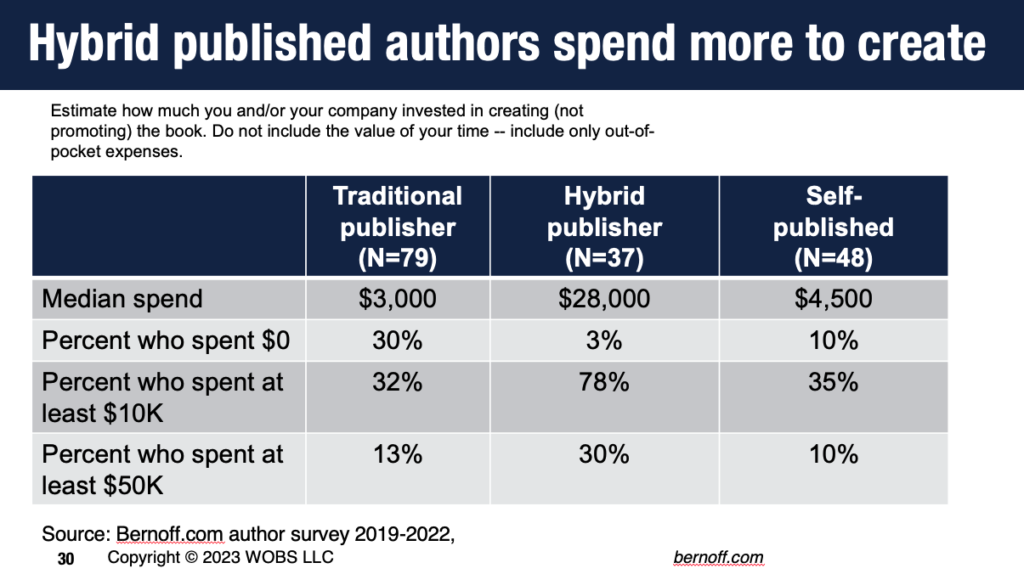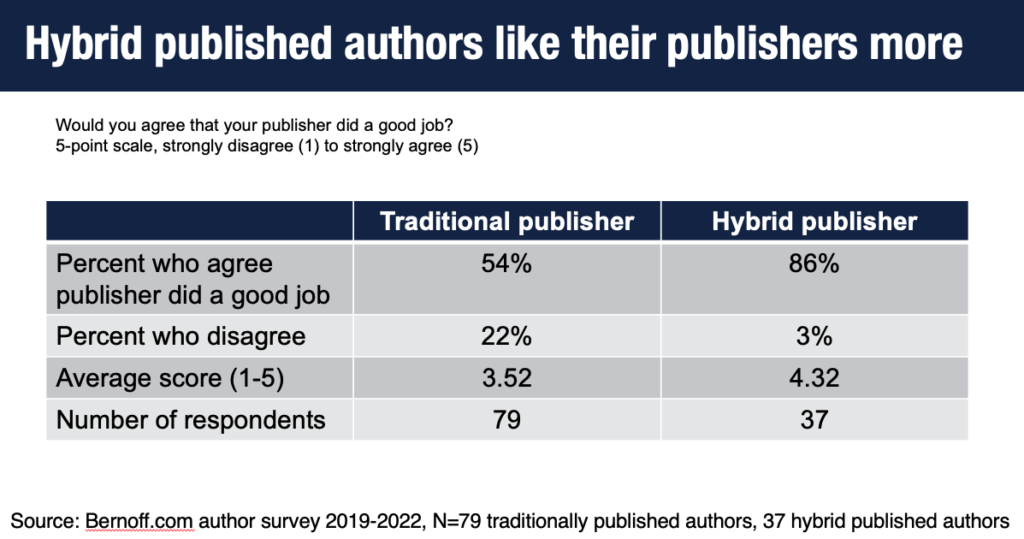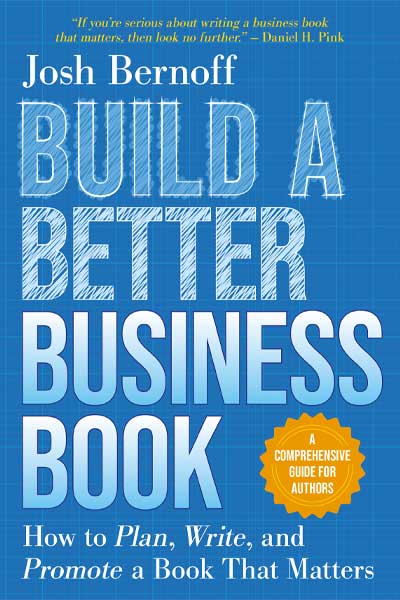Authors give hybrid publishers higher marks
There are three basic ways to publish a book. You can pitch a traditional publisher, hire a hybrid publisher, or self-publish.
If you want to make an impact, especially with a hardback book, self-publishing isn’t nearly as effective as traditional or hybrid publishing. But how do those two publishing models compare, based on authors’ actual experiences?
In my survey of nonfiction authors, I reached 79 traditionally published authors and 37 who used hybrid publishers. Traditional publishers pay advances in the tens or hundreds of thousands of dollars and have stronger relationships with bookstore channels. By contrast hybrid publishers typically cost authors tens of thousands of dollars, as shown in the data below.

Authors feel more positively towards their hybrid publishers than towards their traditional publishers
But putting aside the financials, how do the two types of publishers compare? Does paying your publisher get you better service?
Apparently, it does. About 7 out of 8 authors working with hybrid publishers — 86% — agreed that their publisher did a good job. Only 54% of those working with traditional publishers did. Looking at responses on a five-point scale, authors rated hybrid publishers at an average of 4.32, while they rated their traditional publishers only 3.52.

Anecdotally, nearly every traditionally published author I speak with has a litany of complaints about their publisher. Hybrid published authors aren’t completely satisfied, either, but they’re more likely to come away with a generally positive impression.
These attitudes are also reflected in the verbatim comments about publishers I received in the same survey. The comments about traditional publishers were full of disappointment, while the hybrid publishers received generally positive reviews.


A legitimate hybrid publisher is a worthwhile partner
There’s a reason for these differences. Traditional publishers are great at lip service, but their editorial, production, and marketing resources are now stretched very thin. They tend to dedicate more of their attention to the very biggest authors, leaving the rest feeling unloved.
Hybrid publishers, on the other hand, need to work harder to win over paying authors. In contrast to the traditional publisher, whose customer is a bookstore, the hybrid publisher’s customer is the author. They thrive on referrals. As a result, they tend to be far more responsive and dedicate more resources to the books they’re publishing.
Admittedly, these sample sizes are small. And it’s hard to generalize when every book, author, and publisher is different. But at the very least, this data mean you should consider hybrid publishing as a viable option — one where the money you pay will get you get a higher level of service, more transparency into the publishing process, and a faster publication schedule.
My new book Build a Better Business Book: How to Plan, Write, and Promote a Book That Matters, includes much more data from this survey as well as a whole chapter on publishing models. It’s available now.
